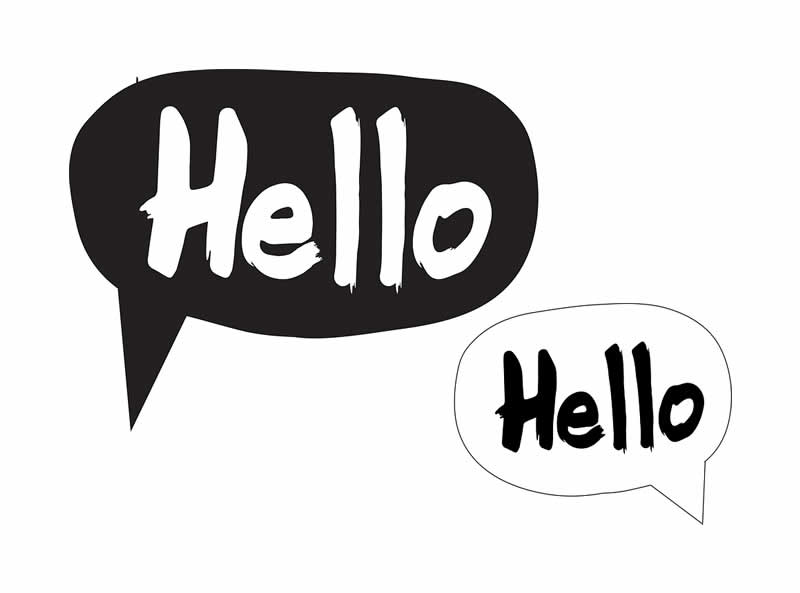First Impressions
One of my team recently was in the market for buying a new car. Just for the record she’s a bit of a petrol head and Top Gear used to be her favourite programme. She’d thoroughly researched the possible cars, shortlisted 3 and made an appointment at her local dealership. She found exactly what she was looking for, delivery was perfect, the trade in on her old car was great and the price was right. But she didn’t make the purchase.
So what happened?
The first salesman (let’s call him Geoff) got it completely wrong by greeting her husband first and addressing all the questions to him. After that it was downhill and even with “deal of the century” she had to think about it, jumped in her car, drove to a dealership miles away without an appointment and was greeted by Jim who opened with “Thank you for coming in and who is the car for?” Guess who got the sale – even though the deal wasn’t quite so good and it wasn’t as convenient for her to travel there!
For Geoff the first impression he created cost him the sale and there was no way he was going to dig himself out of that hole. Even if it hadn’t started with such a howler of a mistake within the initial few seconds of meeting a new person we decide if we like them – and that first impression stays with us. In an act called “thin-slicing” we take a mental snapshot of someone and guess their competence, confidence and likeability and that opinion often doesn’t change.
Scarily salespeople will have between 4 to 30 seconds to make a first impression on their prospective customer. For one of my team (Polly) it was less than a second. She had just opened the front door, hadn’t said a word when the bride’s mother greeted her with “I don’t like your attitude!” To this day she doesn’t have a clue what it was that caused such an off-the-scale reaction.
First impressions are about likeability and likeability is the key to building emotional connections with your bride. Emotions drive sales. If your bride likes you she should be open to answering questions, engage about her wedding, weight/body issues, family feuds et al and should trust you and should buy from you.
There are many reasons a bride, her mother or another member of the bridal tribe may like you or not like you and many of the reasons (rational or irrational) are completely outside your control. It is critical that you are aware of what is within your power to control and then you can have a positive impact on first impressions and likeability and it can help neutralise biases.
You may never have experienced such an extreme reaction as “I don’t like your attitude” but read on if you’ve ever felt that you haven’t quite clicked with a bride and her party.
Smile. We always say “The smile goes on with the lipstick”. Even if you’ve just had a customer claiming compensation or a second visit cancelling as she’s found her dress elsewhere – the show must go on. Remember your bride is in a celebratory mood and you need to match this. By the way it takes fewer muscles to smile than to frown and it saves on the botox!
Choose your first twelve words carefully. Although research shows that your words make up a mere 7% of what people think of you still don’t leave them to chance. (Professor Mehrabian’s research https://www.bl.uk/people/albert-mehrabian). Express some form of thank you when you meet the client. “Welcome (bride’s name) and thank you for letting me help you find your dress” Clients appreciate you when you appreciate them.
Use your bride’s name. There is no sweeter sound than that of our own name. When you use your bride’s name in conversation within your first twelve words and the first seven seconds, you are sending a message that you value her and are focused on her. Never again will you mistake the bride for the mother! That’s almost as bad as Geoff the car salesman’s howler!
Create rapport. Without rapport people won’t like you or trust you, and if they don’t believe you or like you, they won’t listen to what you have to say. If you feel that you haven’t “clicked” then you need to change by mirroring body language, speed of speech, words used and mood. If the bride calls it a fishtail frock don’t say it’s a trumpet shaped gown. If she’s shy and reserved tell Tigger to take a tranquiliser.
Watch your language. Ask what kind of gown she wants and really listen up. Heed Will Rogers’ advice “Never miss a good chance to shut up”. She will either tell you what she wants – towards, or what she doesn’t want – away from. If she says “I want to cover my arms and want a small train” she is TOWARDS. If she replies “I don’t want my arms on show and don’t want a long train” then she is AWAY FROM. This is a great clue as to how she processes information. If she is towards describe the dress in terms of what it will achieve/what she will gain ie covering your arms is what you want and what you achieve is ease of movement with the short train. If she is away from – geared to what she doesn’t want then tell her that the sleeves will avoid her being self conscious of her arms and that with the short train it will avoid her having the hassle of bustling a train and worrying about guests stepping on it.
The real skill here is paying attention to how people talk when they answer, rather than what they talk about. Even when your bride doesn’t answer the question directly, she will reveal her pattern by the manner in which she answers.
And remember “You never get a second chance to make a good first impression” is equally true today as it was when Will Rogers first said it back in the early 1900s!
More about language patterns in the next article or if you can’t wait then then look at https://www.successtrategies.com/lab-profile/what-is-lab-profile/
View this site for info on Maria’s sales training course and contact her on +44(0) 7768 297 290 or email: maria@pantilesbride.com


Recent Comments